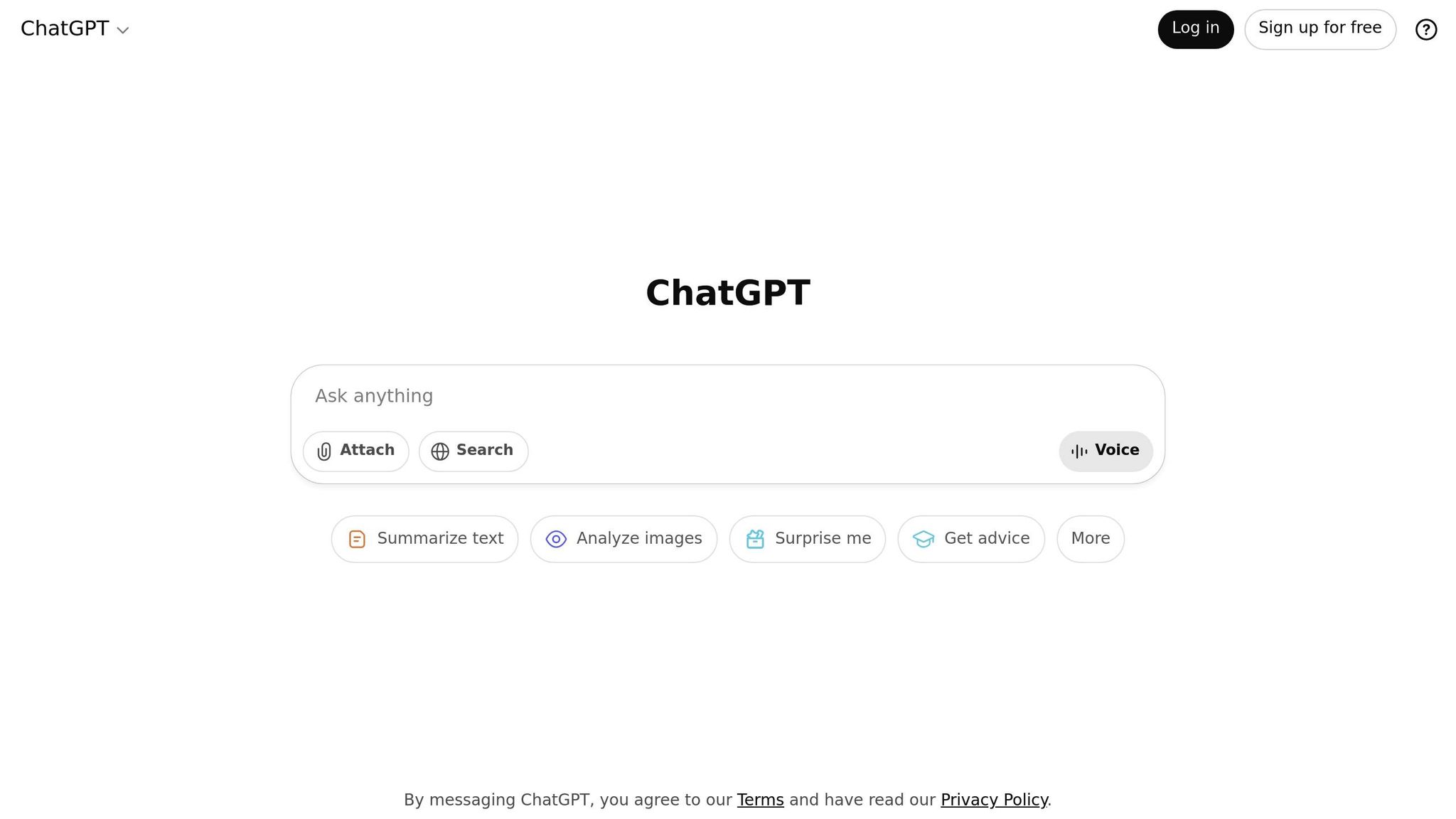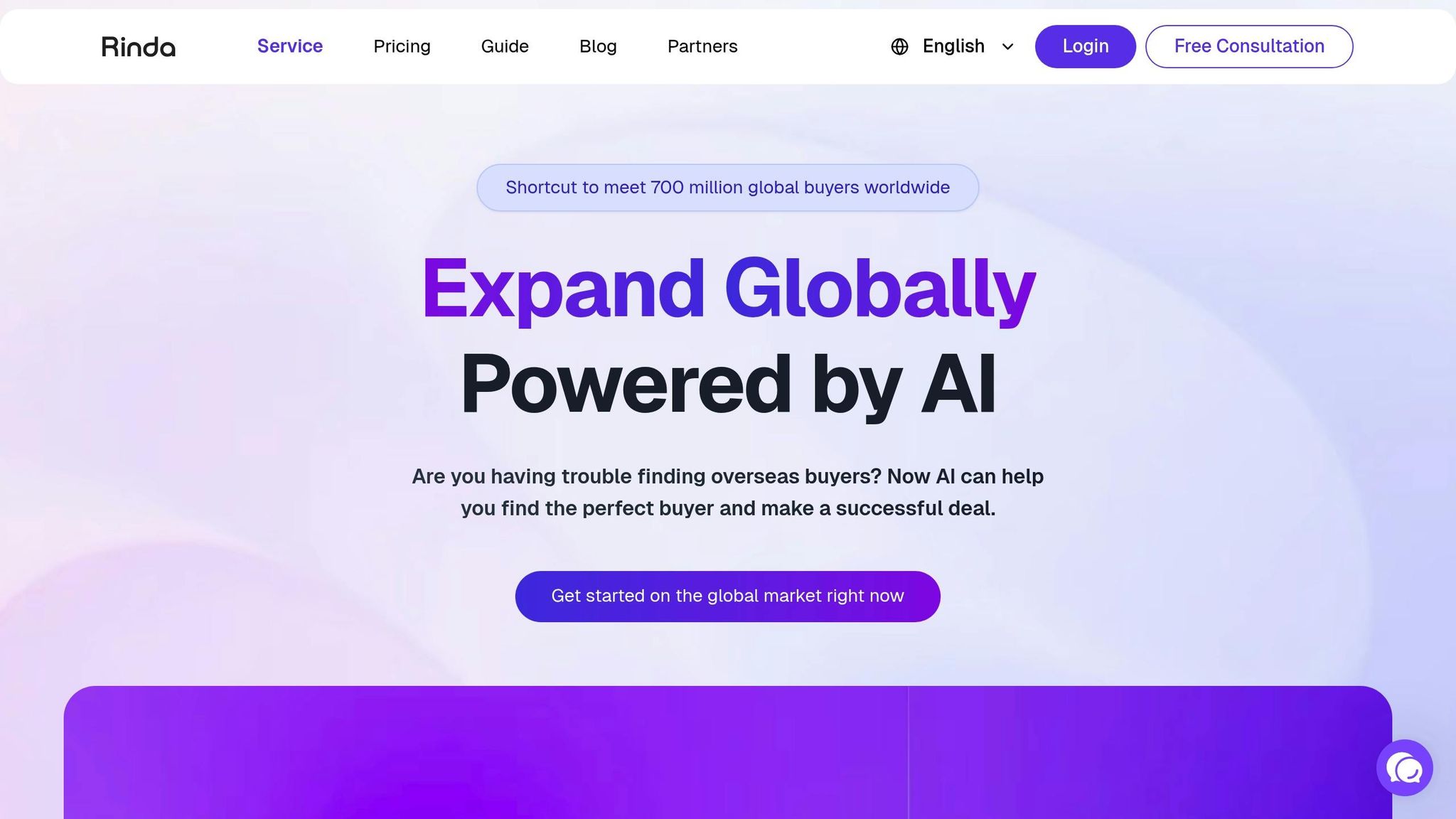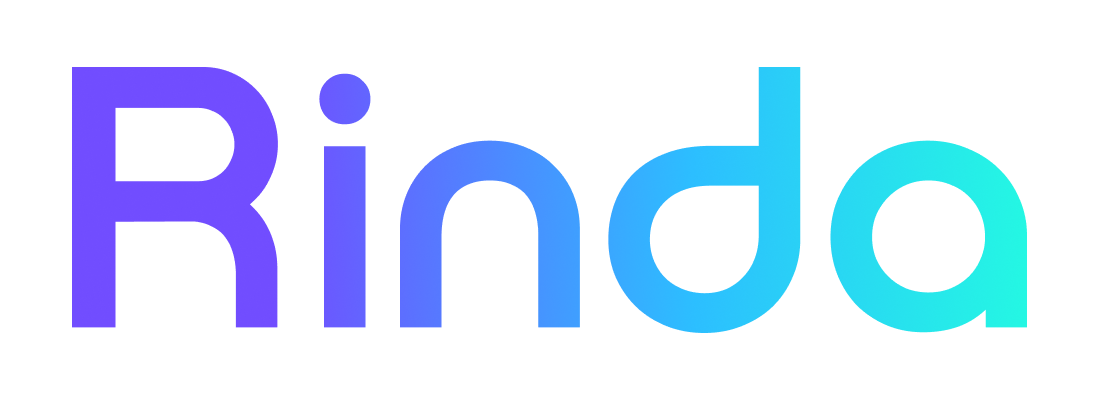AI Skills Worth $18K More: How 66,000 Job Posts Are Reshaping B2B Sales Teams in 2025
Explore how AI skills are reshaping B2B sales teams, driving higher salaries and transforming sales operations with efficiency and strategic insight.

The demand for AI expertise in B2B sales has skyrocketed, with salaries for roles requiring AI skills now averaging $18,000 higher annually - a 28% premium. In 2024 alone, over 66,000 job postings listed generative AI as a required skill, doubling to nearly 139,000 by early 2025. This surge reflects how businesses are prioritizing professionals who can merge AI capabilities with human judgment to optimize sales processes, streamline tasks, and drive revenue growth.
In this article, you’ll gain insights into:
- How AI is transforming B2B sales teams with tools like predictive analytics, generative AI, and automation.
- The top AI skills driving higher salaries, including prompt engineering and data analysis.
- Practical strategies for integrating AI into your sales operations to boost efficiency and ROI.
As businesses increasingly adopt AI, the ability to blend technical expertise with sales acumen is reshaping roles and creating new opportunities. With 70% of sales teams already using AI, staying competitive requires action. Read on to explore how AI is reshaping the sales landscape and how you can position your team for success.
The 3 Skills Every Seller Needs To Dominate With AI
Top AI Skills B2B Sales Teams Need Now
The rise in AI-driven job opportunities highlights specific skills in demand, with companies offering premium salaries to attract talent. Developing these capabilities can significantly enhance both individual careers and team performance.
The ability to merge traditional relationship-building techniques with AI-driven efficiency is becoming a sought-after trait. According to McKinsey, generative AI has the potential to deliver nearly $1 trillion in productivity gains across sales and marketing functions. Businesses are prioritizing professionals who can use these technologies to streamline repetitive tasks, deliver personalized customer experiences at scale, and derive actionable insights from complex data. Below are the top AI skills reshaping the sales landscape.
Generative AI and Large Language Models
Generative AI is transforming sales operations, becoming a cornerstone of modern strategies. Gartner projects that by 2028, 60% of B2B sales activities will rely on conversational interfaces powered by generative AI, a sharp increase from less than 5% in 2023.
Consider the example of an industrial materials distributor that used generative AI to analyze unstructured public data, such as construction permits, to identify future capital projects. This approach enabled personalized outreach at scale, generating over $1 billion in new opportunities, increasing the sales pipeline by 10%, and doubling click-through rates within one fiscal year.
Similarly, a healthcare managed care organization revolutionized its RFP response process by leveraging generative AI to analyze historical responses and public contract records. This reduced assessment time by up to 80%.
These examples demonstrate why companies value candidates who can skillfully prompt and optimize generative AI systems for sales-specific applications.
Prompt Engineering and ChatGPT Skills

Prompt engineering has emerged as a vital skill, directly impacting the quality and relevance of AI outputs. Professionals adept at crafting effective prompts can generate tailored emails, detailed reports, and research summaries - tasks that previously consumed significant time. This expertise sets apart those who merely use AI tools from those who maximize their potential.
One European telecommunications company implemented a generative AI-powered dashboard to evaluate customer service call scripts, score conversations, and identify areas for improvement. By using carefully designed prompts, the company achieved a 20–30% boost in customer satisfaction scores.
The financial benefits of prompt engineering are evident in lead nurturing. Businesses that integrated AI into account-based marketing strategies saw a 25% improvement in pipeline efficiency, while those using AI for lead nurturing reduced closing times by 30%. These skills enhance AI’s utility while strengthening the strategic edge of sales teams.
AI Sales Automation and Data Analysis
AI sales automation now goes beyond simple email sequences to include advanced tools like predictive analytics, lead scoring algorithms, and dynamic pricing models. Sales professionals need to understand how AI systems analyze customer behavior, engagement trends, and market signals to prioritize leads and suggest optimal next steps. Companies leveraging such tools have reported a 20% improvement in lead-to-revenue conversion rates and a 25% increase in pipeline velocity.
For instance, a global industrials company created an AI-powered growth engine combining data from over ten internal and external sources. This system mapped existing and potential customers, prioritized by account potential and wallet share, and used AI agents to craft personalized value propositions. The result was a 40% increase in conversion rates and a 30% faster lead execution process.
In the most advanced cases, AI systems can predict customer behavior and adapt strategies in real time. A B2B services company developed AI-driven pricing models tailored to new deals and renewals. By analyzing hundreds of deal parameters, the system suggested optimal discounting options, leading to a 10% boost in earnings. Mastery of these techniques highlights why professionals with AI expertise often earn an $18,000 salary premium.
Key Insight: The $18,000 salary premium underscores the scarcity of professionals who can combine technical AI expertise with sales acumen. Companies are searching for individuals who can effectively prompt AI systems, interpret automated insights, and apply human judgment to foster genuine customer relationships.
How 66,000 AI Job Posts Are Changing B2B Sales Teams
The rapid growth in AI-related job postings is reshaping the way B2B sales teams operate, recruit, and structure their workflows. With over 70% of sales teams now incorporating AI technologies into their processes, the shift has moved far beyond experimentation. AI is becoming a cornerstone of sales infrastructure, merging human expertise with machine-driven capabilities to create hybrid models. This transformation calls for a mix of traditional sales skills and a growing proficiency in AI tools.
This change isn't just about adding new technologies - it's about rethinking how sales operations function entirely. McKinsey's research highlights that more than 65% of B2B buyers now prefer digital self-service or remote interactions over conventional sales methods. This preference, combined with the rise of AI-trained professionals, is pushing companies to overhaul their strategies for customer engagement and revenue generation.
Sales Teams Need Both Traditional and AI Skills
Modern sales roles demand a unique combination of relationship-building expertise and AI proficiency. This dual skill set is increasingly linked to higher earnings potential in the industry.
Experts recommend embedding AI into every level of the sales organization rather than isolating it in a separate department. For instance, business development representatives use AI to research leads, while account executives rely on predictive analytics to forecast deals. Sales leaders, in turn, are becoming strategists who integrate AI into every aspect of revenue operations.
The most successful teams view AI as a tool that enhances human capabilities rather than replacing them. Companies like Salesforce and HubSpot have demonstrated this by reporting productivity gains of 30% and 25%, respectively, after adopting AI-powered sales tools.
AI Handles Routine Sales Work
AI is also transforming everyday sales tasks by automating routine processes. By 2025, an estimated 30% of all sales tasks will be automated. Functions like lead qualification, outreach, data entry, and research are increasingly handled by AI, freeing up sales teams to focus on more strategic, high-value interactions.
Automation is delivering tangible results. Trigger-based workflows, for example, achieve conversion rates that are 25% higher than traditional approaches. Similarly, AI-driven email personalization boosts open rates by 26% and click-through rates by an impressive 130%. When it comes to lead management, AI systems analyze vast datasets to score leads, predict buying behavior, and recommend engagement strategies. Companies leveraging predictive analytics are 2.5 times more likely to exceed their sales targets.
AI Enables Global Sales Operations
AI's capabilities extend beyond local markets, enabling sales teams to operate on a global scale. By 2025, 80% of B2B sales interactions are expected to take place on digital platforms. AI facilitates seamless communication across time zones and languages, handling initial outreach, scheduling, and lead qualification with ease.
The rise of AI-powered B2B marketplaces is another game-changer. These platforms allow buyers to describe their needs and receive curated solutions in real time. To stay competitive, companies are increasingly hiring AI specialists to enhance their digital presence and optimize performance on these platforms.
Integrating AI into sales processes has proven benefits. Organizations can achieve up to a 20% boost in sales productivity and a 15% increase in revenue growth. These gains are driven by AI's ability to maintain consistent engagement, analyze global market trends, and tailor messaging for different regions, enabling leaner teams to handle larger territories and complex international operations effectively.
Key Insight: The 66,000 AI job postings highlight more than just a hiring trend - they reflect a sweeping transformation in B2B sales. Companies are building hybrid teams that combine human expertise with AI-driven efficiency, positioning themselves for success in an increasingly digital marketplace.
How to Add AI Sales Tools to Your Team
Integrating AI into your sales team requires a thoughtful approach - assessing skills, addressing gaps, and setting measurable goals. Companies that incorporate AI into sales coaching have seen 3.3 times greater year-over-year growth in quota attainment compared to those relying solely on AI tools. Investing in training and tools can deliver fast, tangible returns.
Assess Your Team's AI Skills
Start by evaluating your team's current abilities and identifying areas where AI could make an impact. Conduct a detailed skills inventory to understand the strengths and gaps across key roles. Pinpoint which positions depend on or could benefit from AI, and determine the competencies required to fill any gaps.
Gather input from managers, team leads, and employees to explore how AI might enhance workflows and overall performance. As Brian, a Sales Director, shared:
They can better leverage automation and AI to streamline processes.
Stay ahead of industry changes by anticipating how evolving trends may affect the skills your team needs. Once the gaps are clear, focus on targeted training to prepare your team for the future.
Train Your Team on AI Tools
Tailor training programs to your team's specific needs, focusing on practical applications that connect AI capabilities to everyday sales tasks. The most effective training uses real-world scenarios to demonstrate how AI can improve processes and outcomes. For example, the healthcare company Precina uses AI coaching to help new clinicians practice pitches and engage in role-playing scenarios.
Set clear goals for training - whether it’s improving win rates, accelerating onboarding, or boosting overall performance. Integrate AI tools with your CRM to ensure seamless functionality and data security. John Oberg, CEO of Precina, highlights the importance of consistent practice:
I've asked my team to practice once a day. They're warming up every day for professional calls. We want our providers to be warming up every day before they talk to patients.
Regularly review AI-generated coaching insights to ensure they remain relevant. Collect feedback from your team to continuously refine and improve the training program.
Leverage RINDA for AI Sales Automation

Once your team is equipped with the right skills, implement a dedicated AI platform to enhance your sales process. RINDA offers an all-in-one AI solution that automates critical sales tasks, including global buyer discovery, multilingual communication, and performance analysis. This allows your sales team to focus on building relationships while the platform handles routine tasks like prospecting and outreach.
RINDA’s AI buyer discovery identifies potential customers worldwide and crafts personalized engagement strategies. It generates emails in over 20 languages, verifies buyer interest in real time, and conducts automatic credibility checks to streamline lead qualification. Additionally, its email performance analytics provide actionable insights to refine strategies continuously.
RINDA offers flexible plans to fit teams of all sizes, from a Free plan with essential features to Standard plans with unlimited lead searches and advanced automation capabilities.
Measure AI's Impact with Clear Metrics
To ensure your AI investment delivers results, establish clear metrics to track its impact. Monitor progress against your initial goals and adjust your strategies based on performance data.
Key metrics include time saved in lead research, qualification, and outreach, as well as conversion rates from AI-generated personalized messaging. Additionally, track pipeline velocity, changes in deal size, and quota attainment rates. For example, consider the $18,000 salary premium tied to AI skills and measure productivity gains to evaluate ROI.
Regularly collect feedback from your sales team to stay aligned with market changes and refine your approach as needed.
Key Insight: Successfully adopting AI in sales requires a structured approach - assessing current capabilities, providing targeted training, implementing the right tools, and measuring outcomes. Teams that follow this framework can unlock the full potential of AI, gaining a competitive edge in today’s evolving marketplace.
Traditional Sales vs AI-Powered Teams: Key Differences
The contrast between traditional sales methods and AI-powered teams is striking, particularly when it comes to efficiency, scalability, and decision-making. Marc Benioff, CEO of Salesforce, captures this shift succinctly:
AI is the future of sales, and companies that don't adapt will be left behind.
The operational differences between these two approaches are significant. Traditional sales teams often rely on manual processes for data collection and entry, which not only consumes valuable time but also increases the likelihood of errors. In fact, sales representatives spend an average of 21% of their time on manual data entry. On the other hand, AI-powered teams automate these tasks, providing real-time insights that enable faster and more accurate decision-making.
AI’s impact on sales outcomes is equally compelling. For instance, AI algorithms can increase lead generation by up to 50% while reducing call times by 60%. Companies that have adopted AI-powered lead scoring have reported improvements in conversion rates, climbing from under 5% to 6.5%, and a rise in qualified leads from 45.5% to 64.1%. In contrast, teams that rely solely on human judgment often experience conversion rates that are 30–40% lower.
| Aspect | Traditional Sales | AI-Powered Sales |
|---|---|---|
| Data Analysis | Manual and prone to errors | Automated with real-time insights |
| Decision Making | Based on intuition and experience | Data-driven with predictive analytics |
| Lead Generation | Manual prospecting and outreach | AI identifies and targets top leads |
| Personalization | Limited by human capacity | Scalable, hyper-personalized outreach |
| Routine Tasks | 60% of time spent on non-sales work | Up to 80% of tasks automated |
Scalability is another area where AI-powered sales teams outshine traditional ones. Traditional methods face challenges when managing large datasets or scaling operations effectively. In contrast, AI offers a scalable solution, enabling companies to engage with prospects on a much larger scale. By 2026, it’s predicted that AI will manage 85% of sales interactions.
While traditional sales teams excel in building personal relationships - an aspect valued by 71% of customers - AI-powered teams bring hyper-personalized outreach to the table. This approach has resulted in 25% higher response rates, demonstrating how AI enhances customer engagement without sacrificing personalization.
Cost efficiency is another critical advantage. Businesses using AI-powered sales tools have reported a 25% boost in sales productivity, with AI reducing sales costs by as much as 30%. For example, GreenTech Inc., a renewable energy company, implemented AI-driven platforms and achieved a 25% increase in conversion rates while cutting sales cycles by 40%.
However, the future of sales doesn’t rest solely on AI or traditional methods. Hybrid models, which combine AI’s efficiency with the human touch of traditional sales, offer a balanced approach. While AI handles routine tasks and data analysis, human expertise remains essential for building trust and closing complex deals. Many successful organizations have adopted this blend, leveraging AI to scale operations while ensuring personal connections with clients.
Key Insight: The shift from traditional to AI-powered sales is not about replacing human skills but amplifying them. By integrating AI with human expertise, businesses can achieve greater efficiency, scalability, and customer engagement, setting a new standard for sales in the digital era.
Conclusion: AI's Role in B2B Sales Moving Forward
Artificial intelligence is reshaping the landscape of B2B sales, fundamentally altering how teams operate, compete, and deliver results. The rising demand for AI expertise is driving higher salaries for skilled professionals, while job postings for AI-related roles are climbing sharply. These trends underscore that businesses embracing this shift are positioning themselves for long-term success.
Recent statistics highlight this transformation: by 2027, an estimated 95% of seller research will begin with AI, and companies leveraging these tools report up to 79% higher profitability alongside shorter sales cycles. Additionally, generative AI is projected to contribute an impressive $0.8–$1.2 trillion in productivity gains. This rapid evolution points to a future where AI and human expertise work in harmony to achieve remarkable outcomes.
The future of B2B sales isn’t about choosing between human skills and AI capabilities. Instead, it’s about blending the two into a hybrid approach. AI excels at processing data and automating routine tasks, while sales professionals bring essential qualities like relationship building, strategic insight, and the ability to navigate complex negotiations.
As competition intensifies, customer interactions are becoming more digital and automated. Companies that thrive in this environment understand that AI enhances human capabilities rather than replacing them. They focus on continuous skill development, ensuring their teams can adapt to and work effectively alongside AI systems. This approach enables businesses to achieve unparalleled efficiency and deliver a more personalized experience.
Key Insight: Organizations thriving in this new environment view AI as an enhancement to human capabilities rather than a replacement. They invest in continuous skill development to ensure their teams can work effectively alongside AI systems, achieving unprecedented levels of efficiency and personalization.
To succeed in this AI-driven era, sales professionals must commit to ongoing learning. Mastering data analysis, leveraging AI tools, and sharpening strategic thinking will be critical to engaging customers effectively. Companies that prioritize comprehensive AI training programs will be well-positioned to unlock significant productivity gains and revenue growth in the years ahead. This hybrid model demonstrates that AI isn’t here to replace human talent - it’s here to empower it, enabling smarter, more data-driven sales strategies.
FAQs
How can B2B sales teams use AI tools to boost productivity and close more deals?
B2B sales teams can use AI tools to take over time-consuming tasks like follow-ups, scheduling, and data entry. This not only frees up valuable time but also helps shorten deal cycles. Beyond automation, AI can provide targeted insights for microsegmentation, cross-selling, and spotting growth opportunities, making client interactions more tailored and impactful.
Incorporating AI-powered chatbots and CRM systems can further enhance communication and ensure faster responses. Studies suggest this can lead to a productivity increase of up to 15%. With these tools in place, sales teams can dedicate more energy to building meaningful client relationships and driving better results.
What are the top AI skills transforming B2B sales in 2025, and how can professionals build them to stay ahead?
The Top AI Skills Transforming B2B Sales in 2025
Key AI skills like generative AI modeling, machine learning, data analysis, and prompt engineering are reshaping the landscape of B2B sales. These capabilities are becoming essential as businesses increasingly turn to AI to streamline decision-making and automate complex processes. This growing reliance on AI is also driving demand for professionals with expertise in these areas, often accompanied by competitive salaries.
For those looking to stay ahead in this evolving field, building these skills can be achieved through targeted training programs, hands-on experience, and a commitment to continual learning in AI and data science. By mastering these tools, sales teams can unlock AI-powered insights that elevate customer interactions and deliver measurable results.
How is AI automation transforming sales roles, and how can businesses maintain a balance between efficiency and personal customer connections?
AI automation is transforming sales roles by handling repetitive tasks such as data entry and routine communication. This allows sales teams to dedicate their efforts to building stronger client relationships and closing deals. By taking over these time-consuming activities, AI enables teams to focus on more strategic and impactful work.
Interestingly, research highlights that about 60% of customers still prefer personal interactions, underscoring the importance of maintaining a human element in sales. Businesses can achieve this balance by leveraging AI for tasks like data analysis while equipping their sales teams to provide tailored and empathetic customer experiences. This dual approach boosts operational efficiency while preserving customer satisfaction and loyalty.
